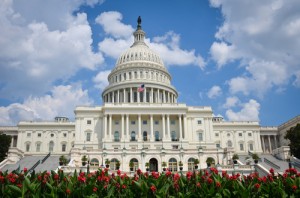Citizenship “Special”?
Since when is Social Studies a “special”?
For those unfamiliar with elementary school lingo, a “special” is the rather ironic term for a subject that kids have once a week or once in a six day cycle. “Specials” typically include Art. Music, Library, and PE. In some schools, Computer is a special. Kids love specials for the change of pace — and probably because they see a different part of the building and a different teacher face. You would think “special” would mean important, but in this case, it means “extra.”
In researching elementary schools this week for a friend who is considering a move, I was stunned to see social studies listed among the “specials” in the elementary curriculum, a class that kids have once a week. Thinking this was a fluke, I poked to find the same thing in a neighboring district. What I feared a few years ago — with the advent of No Child Left Behind — has come true. Science was saved from NCLB purgatory by the current emphasis on U.S. competitiveness in STEM and the inclusion of the NextGen Science Standards as part of Common Core, but even the gr 6-12 Social Studies Literacy aspects of Common Core have not been enough to save Social Studies from becoming “special.”
Why? ” If you test it, they will come. If you don’t, it is a “special.” (I could insert a long discussion about this, but it’s not my point here.)
Robert Frost ended a favorite poem with this oft quoted line:
Two roads diverged in a wood, and I—I took the one less traveled by,And that has made all the difference.
I fear that this time we have taken the wrong road, and THAT is going to make all the wrong difference. Where does this path lead us, this path where kids rarely see and hear discussion about what it means to make the tough decisions of government, to learn from our past and to plan for a society that fits our ideals? If social studies is a special, it drops to the bare facts and skills that can fit into one class per week: know the national symbols, the basics of your state’s history, the names of the three branches of government. But elementary kids need to talk about how people and governments make decisions, not just how they pass bills. They need to be aware of how varied cultures are around the world and even around their city. They need to understand why people’s opinions differ on upcoming elections or social issues. While they are young, they need to learn to be citizens of a broader world. They will not simply “pick up” a deep sense of citizenship, history, cultural richness, and personal involvement when social studies suddenly becomes a (non-special) subject in middle school.
I am certain no policy maker has planned a study to find out whether loss of social studies experiences and discussions in elementary school has an effect on whether kids later become involved voters or savvy global citizens. I offer a strong hypothesis that these kids won’t care as much about why people are slipping through society’s cracks, why people from different cultural backgrounds may have a different approach from their own, and how to make the tough decisions about what a national budget should keep or cut. If learning about these decisions doesn’t count before they were 11, why will it when they are 21 or 31 or 41?
Kids tell me they love “specials.” Kids look forward to them, but their parents may not emphasize specials like art or music as anything other than an outside interest or hobby kids will enjoy during leisure time in adult life. I hope by making social studies a special, we have not made citizenship a hobby for a generation to take up in their spare time.
PS On a note to Art, Music, PE and other “special” teachers, I personally believe every one of these subjects is as important as breathing. I was fortunate enough to attend a school that had art and music every day! We had no “specials.” I am painfully aware, however, of the culture of school and of our society in designating certain subjects as “specials, ” i.e. almost expendables in elementary school. But that could be another post entirely.



